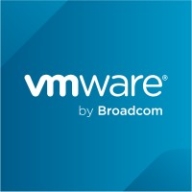

Find out in this report how the two Java Frameworks solutions compare in terms of features, pricing, service and support, easy of deployment, and ROI.
| Product | Market Share (%) |
|---|---|
| Apache Spark | 8.4% |
| Spring MVC | 3.8% |
| Other | 87.8% |


| Company Size | Count |
|---|---|
| Small Business | 27 |
| Midsize Enterprise | 15 |
| Large Enterprise | 32 |
| Company Size | Count |
|---|---|
| Small Business | 5 |
| Midsize Enterprise | 2 |
| Large Enterprise | 11 |
Spark provides programmers with an application programming interface centered on a data structure called the resilient distributed dataset (RDD), a read-only multiset of data items distributed over a cluster of machines, that is maintained in a fault-tolerant way. It was developed in response to limitations in the MapReduce cluster computing paradigm, which forces a particular linear dataflowstructure on distributed programs: MapReduce programs read input data from disk, map a function across the data, reduce the results of the map, and store reduction results on disk. Spark's RDDs function as a working set for distributed programs that offers a (deliberately) restricted form of distributed shared memory
Spring MVC is a Java web framework built on the Servlet API and has been included in the Spring Framework from the very beginning. It handles web applications that use server-rendered HTML user interface, REST APIs, and much more. The documentation includes Spring MVC, View Technologies, CORS Support, and WebSocket Support.
For baseline information and compatibility with Servlet container and Java EE version ranges please visit the Spring Framework Wiki.
We monitor all Java Frameworks reviews to prevent fraudulent reviews and keep review quality high. We do not post reviews by company employees or direct competitors. We validate each review for authenticity via cross-reference with LinkedIn, and personal follow-up with the reviewer when necessary.